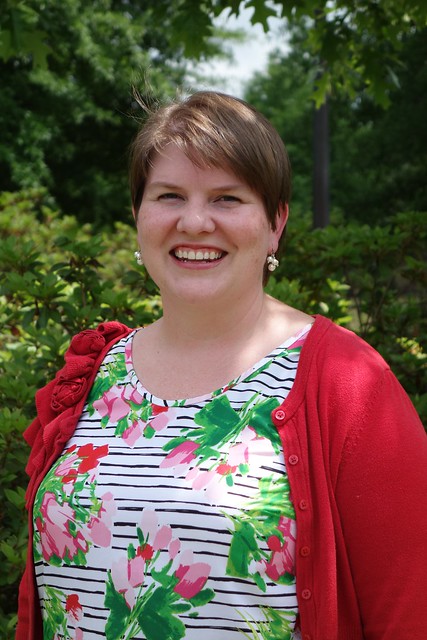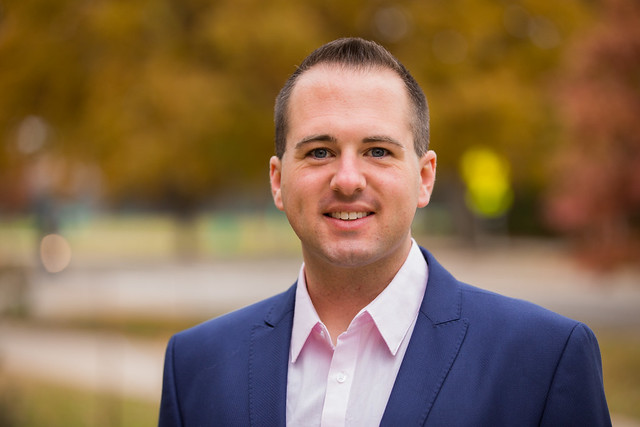Auburn experts react to FDA’s approval of over-the-counter hearing aids
Article body
In August, the Food and Drug Administration, or FDA, approved the sale of over-the-counter, or OTC, hearing aids for Americans. While increased access to the aids may be viewed by some as a positive development due to lower costs for citizens, there also may be negative ripple effects of the FDA’s decision. Below, Associate Clinical Professor and Audiologist Kelli Watts from Auburn University’s Speech and Hearing Clinic and Gregory Spray, an assistant professor of Speech, Language & Hearing Sciences, weigh in on the topic. They look at the issue from a variety of angles and suggest the best course of action for anyone who may be suffering from hearing loss.
Can you talk about what was behind the FDA’s decision to allow citizens to purchase over-the-counter hearing aids in August?
Watts: There are approximately 30 million adults in the U.S. with hearing loss, yet only about 30% of hearing impaired Americans have ever worn hearing aids. The goals of the FDA decision were to improve access to hearing devices, as well as offer consumers a less expensive option.
Untreated hearing loss can contribute to social isolation, depression, anxiety, fatigue, cognitive decline and reduced personal safety.
Spray: In 2017, Public Law 115-52 (FDA Reauthorization Act of 2017) was established, which required the FDA to issue draft regulations for over-the-counter hearing aids by August of 2020. The FDA was unable to meet this deadline because of the COVID-19 pandemic. However, the initial regulations were issued in October 2021 following an executive order by President Biden. The legislation intended to offer adults with self-perceived mild-to-moderate hearing loss an opportunity to purchase these devices at a lower cost.
What positives and negatives do you see coming from this development?
Watts: I see several potential positives to this decision: 1) Many patients in rural areas live hours away from the nearest hearing health care professional. The ability to purchase hearing devices at their local pharmacy—Walmart or other larger retailer—or from an online retailer will give them a more accessible way to treat their hearing loss; 2) Many of the OTC devices do not look like traditional, prescription hearing aids. Patients with cosmetic concerns may be willing to try OTC devices even though they will not try prescription hearing aids. Wearing a hearing device even in the early stages of hearing loss can improve long-term outcomes because the nerves of the auditory system are still being activated.
However, I have several concerns about this increased access: 1) Medical treatment for patients who have a serious cause for their hearing loss (such as a brain tumor) could have a delay in medical treatment; 2) Audiologists are required by law to have a return policy for prescription hearing aids, but the FDA rule does not require manufacturers or sellers to have a return policy. Since OTC devices are still a significant investment (approximately $300 to $1,000), consumers who are unhappy with their purchase may not be able to recoup their cost; 3) Prescription hearing aids are programmed to prevent additional hearing loss due to loud sounds. OTC devices are not required to have a volume limiter. Patients could cause more damage to their hearing if the devices are improperly set.
Ultimately, OTC devices are not appropriate for all consumers with hearing loss. My biggest fear is that someone who is not really an OTC candidate will try them, not like them and never seek a prescription hearing aids from a licensed hearing healthcare professional.
How important is it for people to consult an audiologist or other medical professional for an accurate diagnosis before looking for hearing aids?
Watts: It is very important for people with hearing loss to consult a hearing health care professional. While hearing loss can be caused by age and noise exposure, there also are more serious reasons for hearing impairment, such as a brain tumor or stroke. Some hearing losses, like those cause by infections, may be treatable with medications or surgery instead of hearing aids. A hearing health care professional such as an audiologist or ear, nose and throat physician can help patients determine the cause of their hearing loss and if they need treatment other than a hearing aid.
People should absolutely see a hearing health care professional if they have any of the following symptoms:
- Sudden or rapidly changing hearing loss
- Hearing loss in only one ear, or hearing that is significantly different between ears
- Ringing noise in only one ear
- Pain or discomfort in the ear
- Drainage (pus, blood or other fluid) coming from the ear
- Sensation that something is in their ear
- Vertigo or dizziness
What advice would you give to anyone who is suffering from hearing loss or has a family member who may need treatment for hearing loss?
Watts: As biased as it sounds, consult with an audiologist before making a decision about OTC or prescription hearing aids. If price is a concern, many audiologists dispense OTC devices or have prescription devices at a similar price point. Even if they choose an OTC device, they should still see an audiologist regularly to monitor their hearing loss. Audiologists also can help with cleaning and maintenance of OTC or prescription hearing devices.
What services does Auburn’s Speech, Language and Hearing Sciences program and the Auburn University Speech and Hearing Clinic offer that may be of help to the Auburn community?
Watts: We offer a variety of hearing health care services for all ages, including hearing evaluation, hearing aid fitting and repair, cochlear implant fitting, tinnitus therapy, balance evaluation and wax removal. More information about our services is available at www.aushc.org.
Auburn University is a nationally ranked land grant institution recognized for its commitment to world-class scholarship, interdisciplinary research with an elite, top-tier Carnegie R1 classification, life-changing outreach with Carnegie’s Community Engagement designation and an undergraduate education experience second to none. Auburn is home to more than 30,000 students, and its faculty and research partners collaborate to develop and deliver meaningful scholarship, science and technology-based advancements that meet pressing regional, national and global needs. Auburn’s commitment to active student engagement, professional success and public/private partnership drives a growing reputation for outreach and extension that delivers broad economic, health and societal impact.






